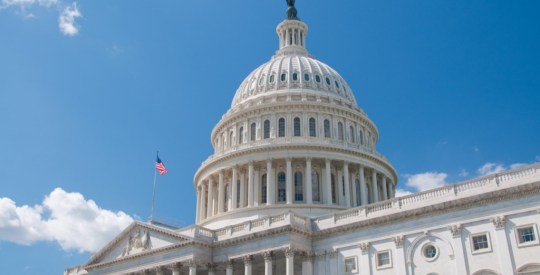As members of Congress grow closer to passing major tax reform, one expert explained why the bills being considered in the House and Senate could increase the supply of homes for sale.
In the middle of the night on Friday, the Senate passed a bill to completely overhaul the current tax system. Now, the House and the Senate will have to come to come to an agreement about which tax bill to send to the president's desk.
The House passed its tax reform bill back in the middle of November. The House and Senate will now need to compromise on which version of tax reform to send to the president’s desk.
Economic analysts at both Goldman Sachs and Nomura are leaning toward successful tax reform legislation from the Republican Party, saying it’s not if, but when.
While most experts claim both bills are aligned on provisions that take away homeownership incentives, one expert disagrees.
One expert explained that, done correctly, it could increase the supply of homes by reducing federal tax subsidies, according to an article on The Wall Street Journal written by Edward Pinto, American Enterprise Institute co-director for the Center on Housing Markets and Finance.
Pinto explained the House’s Tax Cuts and Jobs Act will increase homes for sale by raising the standard deduction and capping new loans that qualify for the mortgage interest deduction, bringing it down from a cap of $1 million to $500,000.
From the article:
How would the House’s approach affect the housing supply? In three ways. First, the stock of second homes totals some six million units; eliminating the interest subsidy on second homes would cause demand for the existing stock to decrease. Most second homes could also be used as a primary residence, either for a new buyer or as a primary home for the current owner after retirement. A conservative estimate is that over 10 years 600,000 second homes, or 10% of this stock, will convert to use by a primary resident.
Pinto also estimated that newly build second homes would decrease, falling from 62,000 or 10% of homes annually, to 15,000 units per year. This would then force builders to focus on homes for primary occupancy.
Finally, Pinto said it would bring demand down for high-cost homes, and refocus it on more affordable housing.
From the article:
In total, it is reasonable to forecast that the House tax bill would create about 870,000 additional available units over 10 years. This represents a boost of 14% (the current build rate will yield about 6.2 million units over 10 years).
And some economists also agree tax reform will be good for the economy. A group of top U.S. economists sent a letter to U.S. Department of the Treasury Secretary Steven Mnuchin, claiming the tax reform bills being considered in the Senate will significantly boost the economy.





